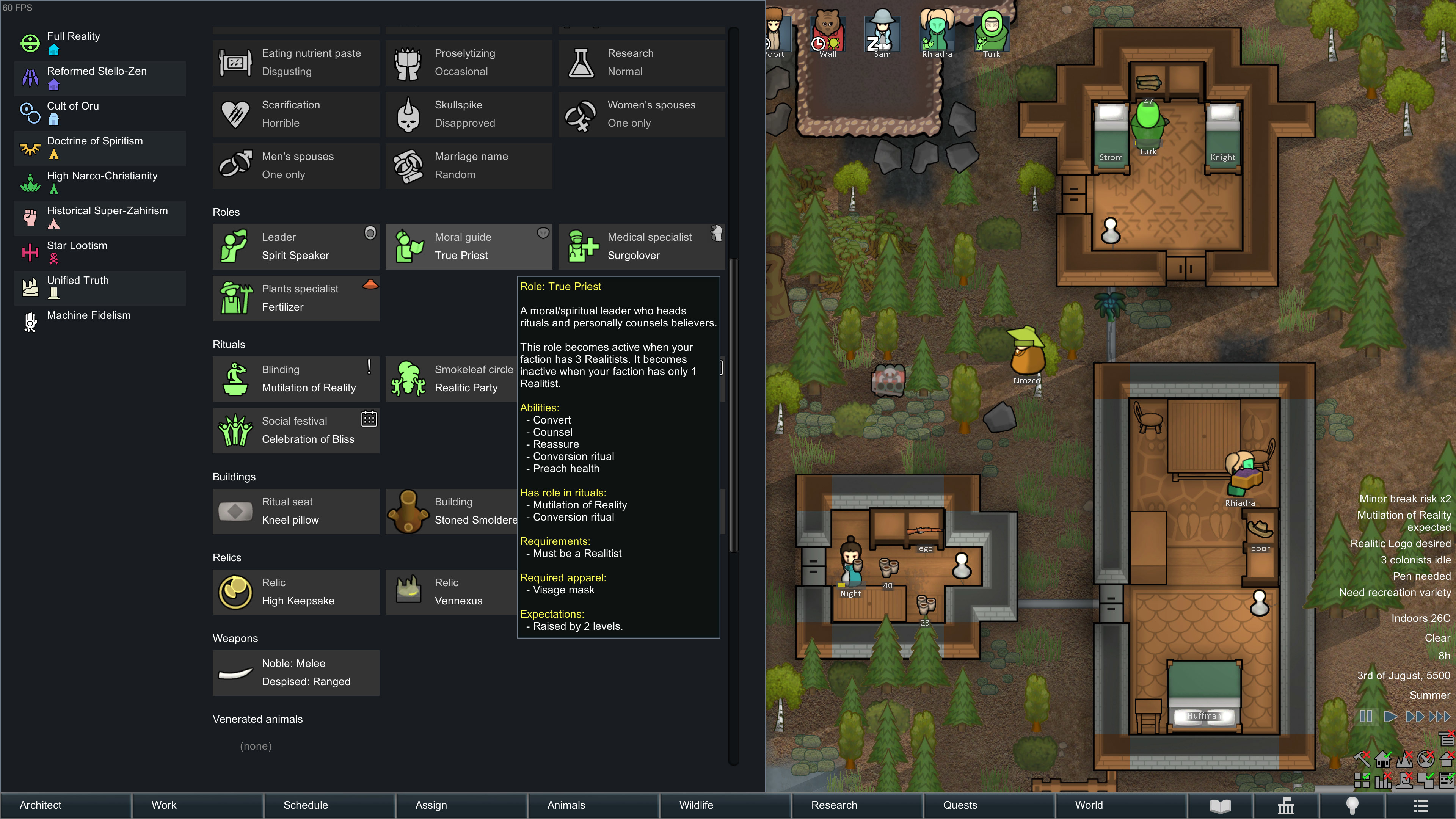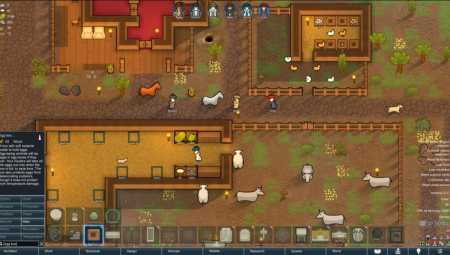
I once had a tiny hut with one solar panel and one battery, with a SINGLE tile of conduit between them and it still exploded. I never really understood short circuits.
#Rimworld zzzt mods#
I know there are mods to basically make fuseboxes but I don't care much for those for reasons I will explain later. I've been turning off short circuit events since pretty much A16 and never looked back on it. I could Imagine a non-fire solution to be instresting, causing a wave of electricity moving along the cable, putting damage to everything 1-5 tiles away from the cable depending on strength. Nevertheless, for me it feels as if batteries are too dangerous in the beginning to be used, but too uselessharmless in the lategame as to be noticed. My solution for this was to build 20 vents into my greenhouse and deactivate them until a fire breaks to release the heat.

Later this wouldn't be a problem, as your building bigger, the fire could be put out faster as your colony got more manpower and the rooms are probably larger, so the heat can spread more. When the explosion comes, it sets lamp and crops on fire, making it impossible to put out the fire, as it burns really quick and secondish gets very hot. Personall I always think about my greenhouse with a sunlamp, walled closely and fueled by 2 solar, a battery and 2 heaters. Whilst in the lategame you can take more of a beating, meaning explosions, you need to rely in the early game on your minimal infrastructure. In the lategame you switch more to battery-less power like geothermal or reactor.

This is the time where it can really matter. The only reason to use batteries is in combination with wind and solar power, as these are the only non-permanent sources.Īs so it could be said, that batteries are more a early/mid-game thing. Especially now, when batteries and solars are gated behind the research - fueled generators are just better unless it is an extreme biome.Īpparently that's a pretty solid point. Maybe with a lot of batteries, it would, but I prefer more reliable power.


 0 kommentar(er)
0 kommentar(er)
